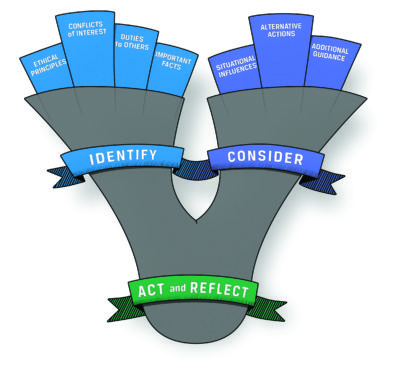Ethics in Practice: Capitalizing on Tax Benefits Is OK, Right? Case Analysis Now Included
How did you do assessing this week’s case (2 April) and whether the investment adviser’s actions were appropriate? Check out the analysis below.
Everyone wants a break on their taxes. But should asset managers choose investments for their clients based on tax advantages no matter what the clients’ situations may be? Read on about a decision one asset manager made, and then join the conversation to discuss what you think about his actions and which CFA Institute Standard of Professional Conduct may be involved.
Case
Marte is an asset manager in Puerto Rico, a US territory. Residents of Puerto Rico receive significant tax advantages by investing in local securities. To capitalize on this advantage, Marte’s firm offers clients shares in a closed-end investment fund, organized under Puerto Rico’s financial laws and regulations, that holds at least 67% local securities and is permitted to borrow against up to 50% of its assets. The fund is usually leveraged to the extent legally permitted. Many of Marte’s clients have a modest net worth and conservative or moderate investment objectives. Marte convinces them to invest 85% or more of their assets in shares of the closed-end fund. Marte’s actions are
- appropriate because they take advantage of the fund’s unique tax benefits for his clients.
- inappropriate because the fund uses leverage to boost returns.
- appropriate as long as Marte fully discloses the risks and benefits of the fund to his clients.
- inappropriate because the fund is an unsuitable investment for his retail clients.
Analysis
CFA Institute Standard III(C): Suitability states that CFA Institute members and candidates in an advisory relationship with clients must “determine that an investment is suitable to the client’s financial situation and consistent with the client’s written objectives, mandates, and constraints before making investment recommendations or taking investment action.” In this case, given the favorable tax advantages of the investment vehicle, investment in shares of the closed-end fund may be suitable and appropriate for his clients at some level. In addition, the fund’s use of leverage may not be inappropriate or make the investment unsuitable. That said, Marte should always fully disclose the risks and benefits of his recommendations to his clients.
But choice D is actually the best response. Given the financial circumstances and investment objectives of his clients, the high concentration of the fund’s shares in his clients’ accounts combined with the leverage make the weighty investment in the fund unsuitable. Despite the favorable tax advantages, highly concentrated clients bear the increased risk that a single market event affecting the value of the fund’s shares would significantly decrease their total account value. This risk is exacerbated by the fact that the closed-end fund is internally leveraged, which could magnify the fund’s loss during a market event that causes share values to drop steeply.
This case is based on FINRA enforcement action from 2015.
Have an idea for a case for us to feature? Send it to us at [email protected].
More About the Ethics in Practice Series
Just as you need to practice to become proficient at playing a musical instrument, public speaking, or playing a sport, practicing assessing and analyzing situations and making ethical decisions develops your ethical decision-making skills. The Ethics in Practice series gives you an opportunity to “exercise” your ethical decision-making skills. Each week, we post a short vignette, drawn from real-world circumstances, regulatory cases, and CFA Institute Professional Conduct investigations, along with possible responses/actions. We then encourage you to assess the case using the CFA Institute Ethical Decision-Making Framework and through the lens of the CFA Institute Code of Ethics and Standards of Professional Conduct. Then join the conversation and let us know which of the choices you believe is the right one and explain why. Later in the week, we will post an analysis of the case and you can see how your response compares.
Image Credit: ©CFA Institute

